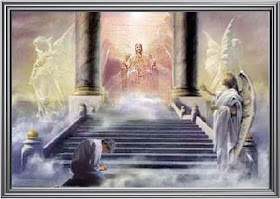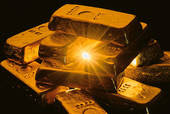"When he cometh in the glory of his Father with the holy angels."
Mark 8:38
But judge thyself this evening; for if thou art not with him in the regeneration, neither shalt thou be with him when he shall come in his glory. If thou start back from the black side of communion, thou shalt not understand its bright, its happy period, when the King shall come, and all his holy angels with him. What! are angels with him? And yet he took not up angels--he took up the seed of Abraham.
Are the holy angels with him? Come, my soul, if thou art indeed his own beloved, thou canst not be far from him. If his friends and his neighbours are called together to see his glory, what thinkest thou if thou art married to him? Shalt thou be distant? Though it be a day of judgment, yet thou canst not be far from that heart which, having admitted angels into intimacy, has admitted thee into union.
Has he not said to thee, O my soul, "I will betroth thee unto me in righteousness, and in judgment, and in lovingkindness?" Have not his own lips said it, "I am married unto thee, and my delight is in thee?" If the angels, who are but friends and neighbours, shall be with him, it is abundantly certain that his own beloved Hephzibah, in whom is all his delight, shall be near to him, and sit at his right hand. Here is a morning star of hope for thee, of such exceeding brilliance, that it may well light up the darkest and most desolate experience.
Today's reading is from "Morning and Evening" by Charles Spurgeon. Find out more: http://click.lists.







